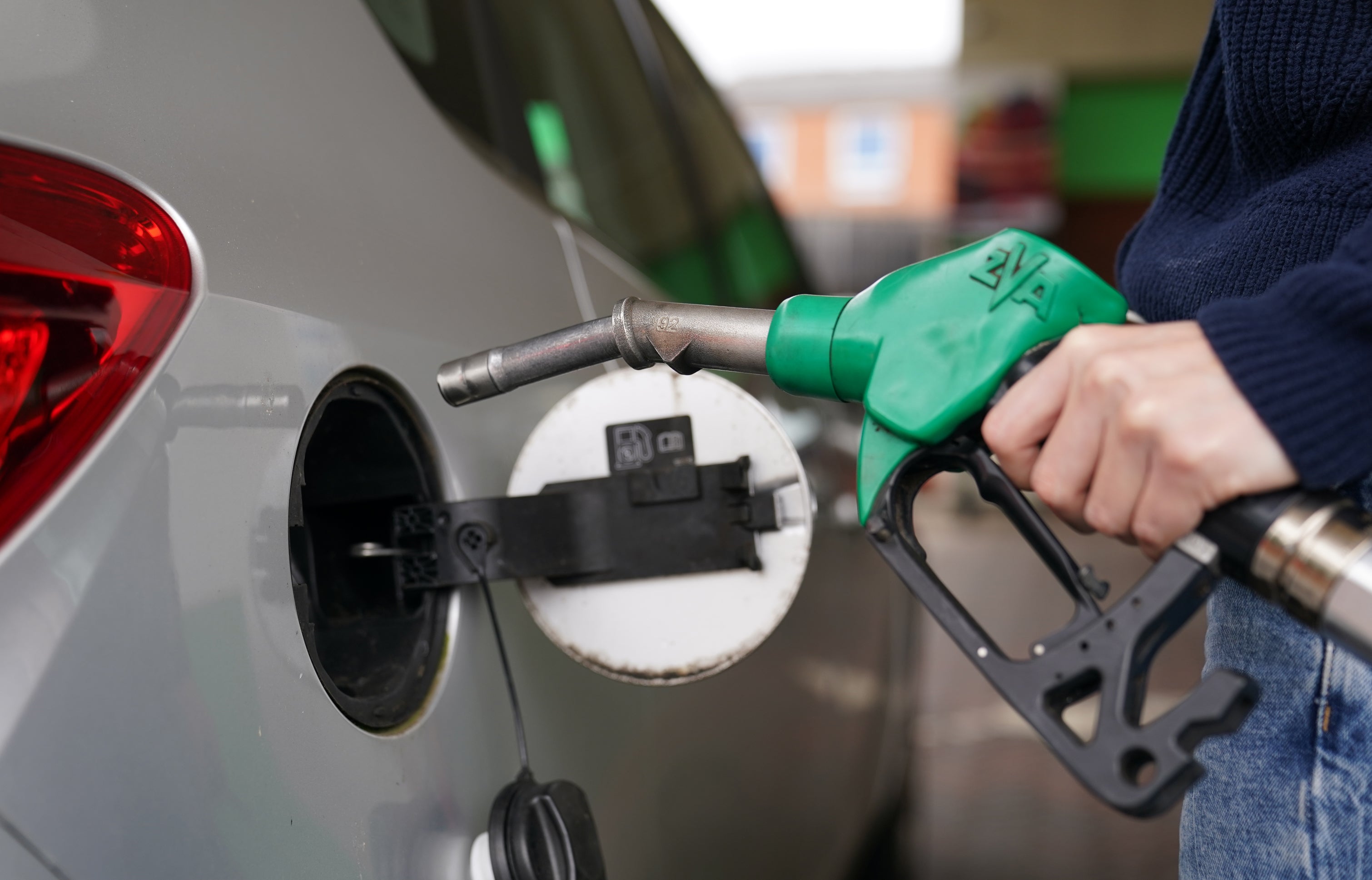
A permanent freeze in fuel duty would cost £27bn over the next five years and benefit the most wealthy in society, a think tank has warned.
The Social Market Foundation said keeping the freeze would be a “reckless waste of money” and undermine the government’s claims to believe in “sound money”.
The think tank called on ministers to unfreeze fuel duty and use the revenue to address the rising costs of driving and “regional inequalities” in access to transport.
Climate campaigners also warned that keeping the freeze would incentivise people to keep driving at a time when the UK is trying to reduce harmful emissions.
Fuel duty has been frozen since 2011, resulting in an estimated £100bn hit to the public purse in lost tax revenue, according to the SMF.
The policy is popular with voters and both parties are leaning towards big giveaways on fuel duty.
Labour has called for a duty freeze and the government is said to be considering making last year’s temporary 5p-per-litre cut into a permanent policy – the largest fuel duty cut in history.
Jeremy Hunt, the chancellor, refused to be drawn on his plans earlier this month following a meeting with the powerful 1922 Committee back benchers, some of whom are calling for a further freeze in March.
The freeze and cuts in fuel duty have benefitted the richest the most. As of 2020, £17bn went to the richest households, and less than half that (£8bn) went to the poorest.

In the same period over 2,000 bus networks outside London have been reduced due to budget cuts and there have been up to 60 million fewer rail journeys.
This spring, another 10-15 per cent of England’s bus services are under threat of being cut.
Meanwhile, repeated freezes in fuel duty have increased the UK’s CO2 emissions by as much as 5 per cent as people drive more because fuel is cheaper.
Gideon Salutin, researcher at the SMF, said: “We are told every day that the public finances are under great strain, and about the heightened importance of sound money.
Yet our politicians are willing to wave away billions of pounds in tax revenue and trash their own claims to fiscal responsibility in order to hand some cash to better-off drivers.”
“Freezing fuel duty yet again would obstruct the UK’s commitments to net zero transport and would hardly help out the most vulnerable.
“Instead of handing £5.5 billion a year for motoring, that money could be used to provide new buses and rail hubs for rural communities, alternatives for those stuck in expensive car ownership, finance green industrial growth, and deliver on more pressing needs.
He added: “Voters need and are more concerned with failing transport infrastructure – the meagre benefits on fuel duty freezes will be remembered by few, but will cost the nation dearly for years to come.”
Climate campaign group Greenpeace said that improving public transport was key to reducing emissions and “levelling up”.
Doug Parr, Greenpeace UK’s policy director, said: “Transport is the UK’s most polluting sector, responsible for over a quarter of all emissions.
“To limit the devastation caused by the climate crisis it’s imperative that we transform the way we get around - improving public transport is absolutely key to that.
“Yet, decades of cuts have left vast swathes of the country with little to no access to local buses, leaving local economies, communities and people stranded.
“Unfreezing fuel duty and investing that cash in public transport is the best way to achieve economic growth, levelling-up and net zero – all ambitions this government claims to have.”
A government spokesperson said: “We’re committed to improving access to transport, which is why we’re putting in £3 billion to protect and improve bus routes and services, and will invest £96 billion to overhaul rail across the North and Midlands, doubling capacity on the UK’s busiest rail route.”







